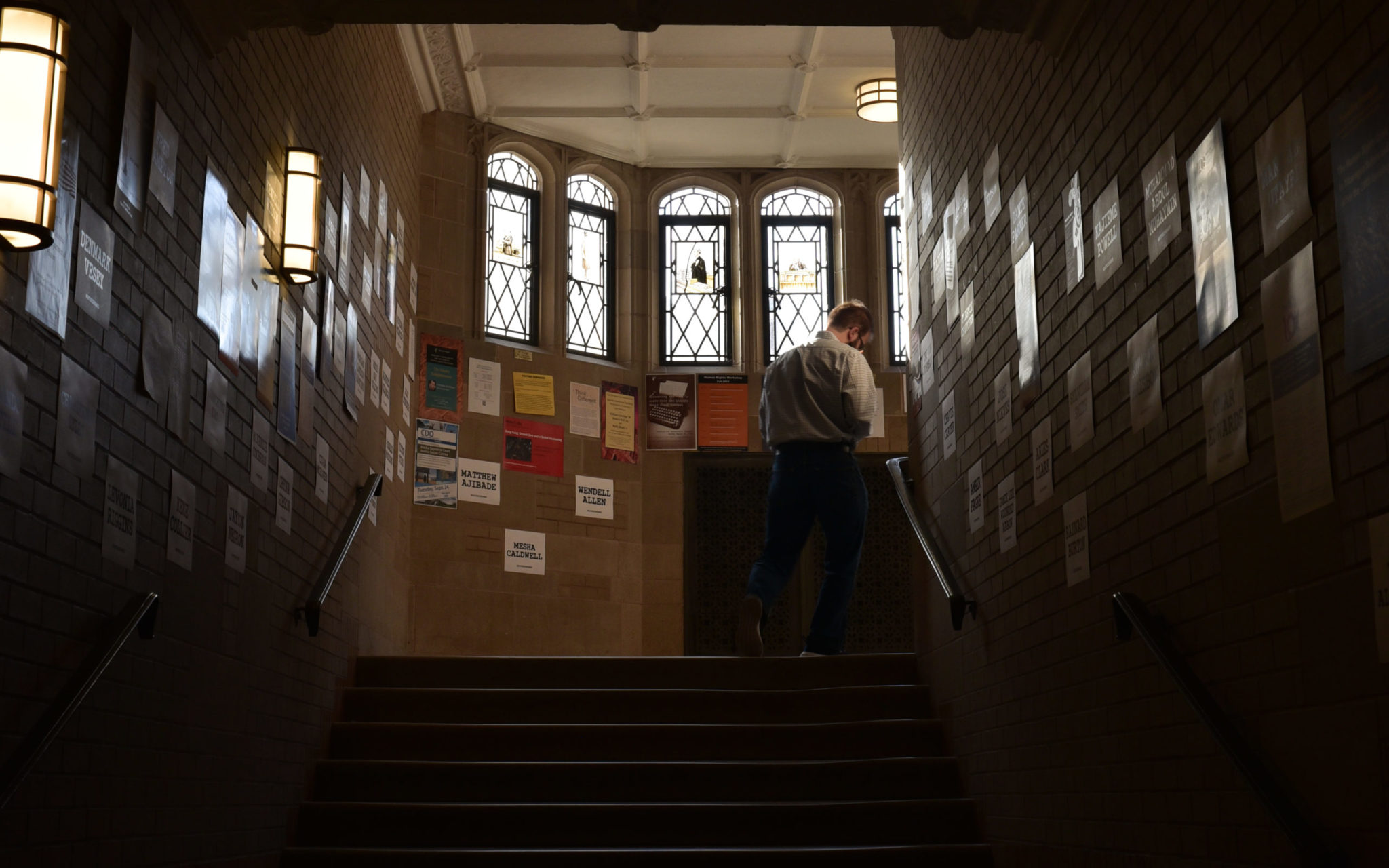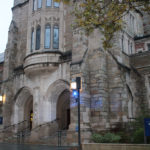YLS program helps New Haven residents become lawyers
Twenty New Haven-area residents just completed the Access to Law School Program and received guided advice and mentorship as they navigate the law school admissions process.

Ryan Chiao, Photo Editor
This past year, 20 New Haven-area students and adults interested in the legal profession participated in the first Access to Law School Program at Yale Law School, led by professor James Forman, Jr. LAW ’92.
Forman got the idea for the program after teaching “Inside Out — Issues in Criminal Justice,” a joint seminar for law students and incarcerated men and women, and receiving questions about whether somebody with a criminal record could become a lawyer. He began the program to provide first-generation, low-income, or under-represented minority students, with resources about the law school application process, including standardized test preparation.
Forman hopes to create a “pipeline” for these students to be able to successfully apply to law school. The 20 inaugural fellows meet every Saturday and have heard from a variety of guest speakers, as well as from current Yale Law School students who come from marginalized backgrounds.
“I think that the notion of becoming a lawyer and going to law school is very daunting,” Forman said. “It’s the kind of thing that people have as a dream … and you see lawyers represented on television, but it still can seem like something that’s unattainable. And where the mentors come in, is they help break down that process. They help people see, well it’s hard, but here are the steps you need to take.”
One of the fellows, Addys Castillo, called the fellowship “one of the most liberating experiences” she has ever had. For her, the most helpful part of the program was being able to meet other people who shared her interests and were trying to pursue legal degrees.
Castillo also spoke highly of the program’s support for the Law School Admission Test, or the LSAT. The program provided one-on-one coaching for the test, as well as group practice sessions.
“If I hadn’t had the program I would’ve been blindsided by the [law school admission] process,” Castillo said. “The beauty of having the program is taking the fear out of the process, the tabooness, and having the mentors from the law school sharing how they got there. … This program helped me get clear and precise about what I want to do and why I want to do it.”
Castillo said that she intends to apply to law schools this coming fall to study how critical race theory manifests itself in administrative law.
According to Shariful Khan LAW ’22, a law student involved with the program, at least 17 of this year’s 20 fellows have taken or plan to take the LSAT and apply to law school. Even so, he emphasized that the program is still a success regardless of whether the fellows end up applying.
“The overall ethos of the program is to invest in New Haven,” Khan said. “And one of the ways to do that is to get [the fellows] to law school, but if we can help them get a job in another way or help them find their real passion, that would also be committing to and investing in New Haven.”
Khan explained that the program seeks to provide support for students who were interested in law school, but “got off track” for some reason, such as needing to make money immediately to support a family or being incarcerated.
According to Khan, the program is so beneficial because the legal profession relies upon informal connections that people from disadvantaged backgrounds may not have.
“Things happen because you know a person, or you know a person who knows a person,” Khan said. “So all these little things that people don’t know about, for example clerkships, are just not accessible to most people as they join the legal profession. Having a mentor who is one step ahead of you … is really big.”
He specifically explained that many of the Fellows have expressed interest in criminal justice and anti-incarceral work, with the ultimate goal of working in a public defender’s office. Khan said that many people fail to realize that public defender’s offices are “very loyal” and tend to not hire people who have previously worked in a prosecutor’s office. As such, he advised many fellows against seeking internships in a prosecutor’s office –– which may seem unintuitive to people without inside knowledge about the field.
Forman highlighted that the law students helping with the program are mostly first-generation students or students of color themselves, which gives them a unique chance to relate to the fellows and provide personal guidance.
“They too had imposter syndrome,” Forman said. “They too experienced stereotypes. They too had parents that were unemployed at times in their childhood. These kinds of things, you just think that if that’s me then I can’t go to law school, but then you meet people who have had those experiences who are in law school, and it makes you believe you can do it.”
The Access to Law School Program is currently accepting applications for its 2021-22 fellowship.









